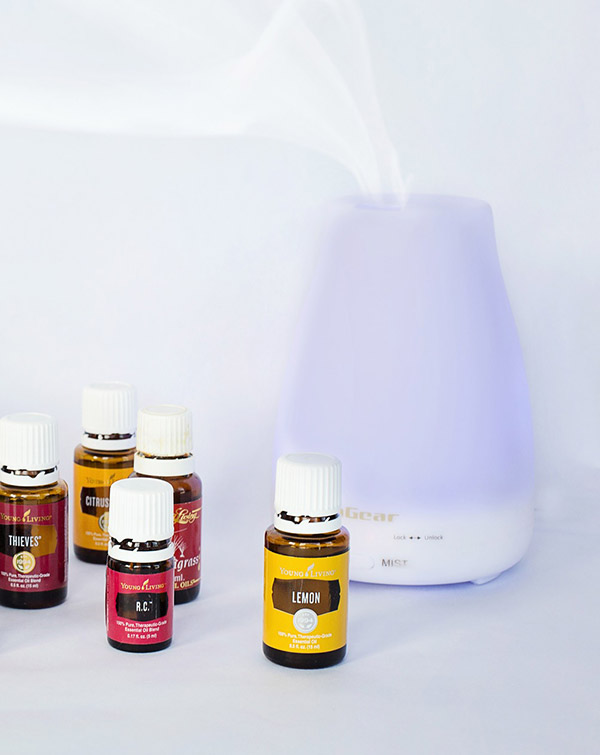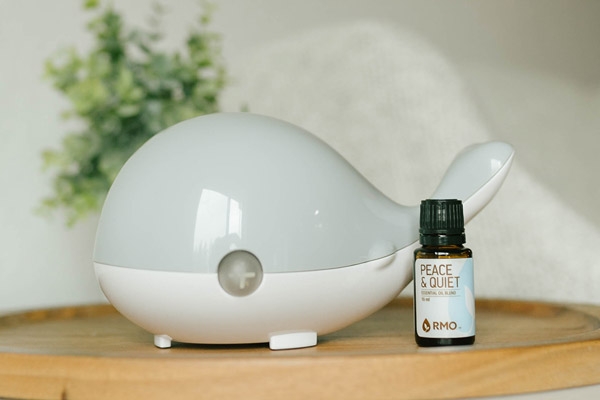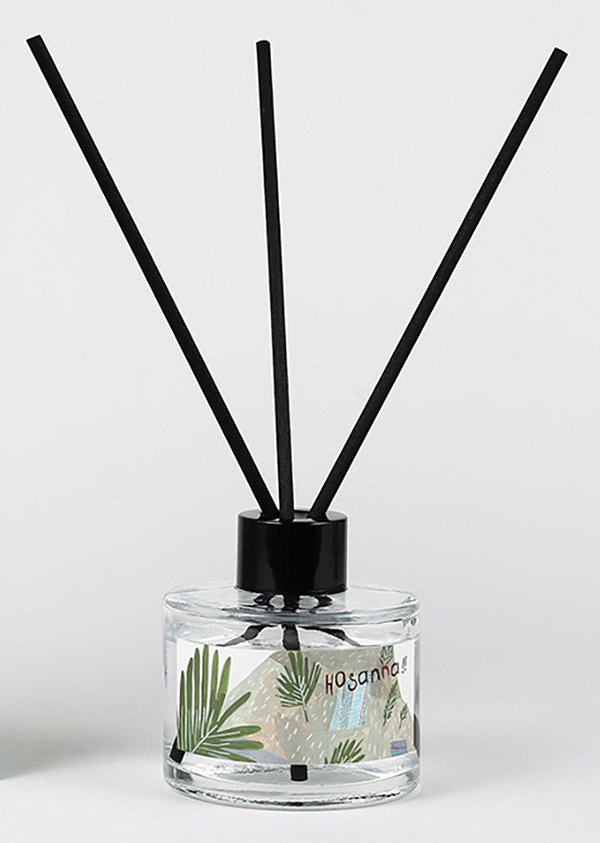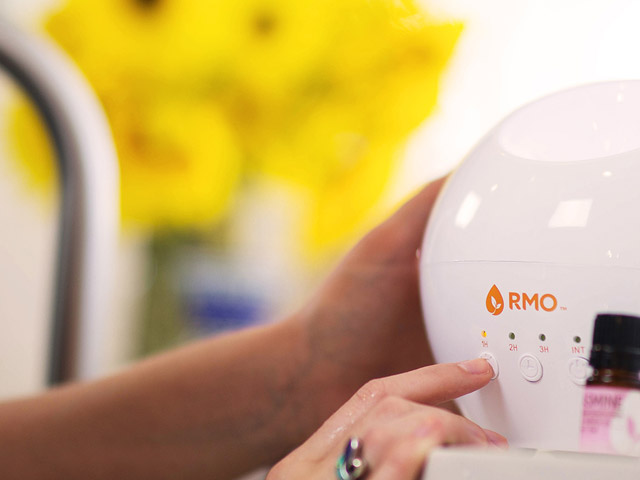Diffuser for Essential Oils
A Comprehensive Guide
Essential oil diffusers are an amazing addition to any household. They have a myriad of uses, from setting an atmosphere to offering health benefits. A diffuser for essential oils is a must have for those who use essential oils regularly.
If you want to have your place smelling nicer, a diffuser can be a great alternative to candles. A diffuser can't catch fire, and you can safely leave it in one room while you are in another, or even leave it on as you sleep. Unlike the more aggressive scent dispensers and candles, you only need to choose a different essential oil to change the scent. You can also use the diffuser to make the bath feel a bit fancier.
You may have already come across a recommendation or two about using essential oil diffusers to promote good health, help you sleep better, and to increase your energy. These little gadgets are great for these and more, as we'll discuss in the following section:
Why You Need a Diffuser for Essential Oils
1. Improve Relaxation and Sleep
The ability of essential oils to help you unwind and rest effectively at the end of a long day is perhaps one of the most popular uses for essential oils. A diffuser provides the easiest and longest lasting method of all for getting the soothing oils from their bottle into your blood stream.
You can have one at the office to help you relax during your lunch break and have another one ready to go in your home once you get back from work. Set another one at your bedside table to relax your mind and get better sleep.
2. Elevating your Mood
Diffusers can also be used to improve and create an energizing mood, which can help when you're feeling depressed or sad. Use your diffuser to get yourself in cheerful spirits during the holiday season, to get moving on a slow morning, to create a positive atmosphere in social gatherings and business meetings, and to set a romantic atmosphere for your special someone. Take a bath with a diffused lavender or chamomile in the room to add extra calming qualities to your plunge.
3. Ease your Breathing
Essential oils are perfect for reducing congestion and inflammation in clogged airways to help you breathe a bit more comfortably. For those prone to allergies and other breathing disorders, you can diffuse essential oils in the room(s) where you spend most time.
You may need to have a box of tissues nearby to avoid that mad dash into the bathroom as your sinuses begin to open up, but what a relief it will be to be able to breathe again!
4. Keeping Illnesses at Bay
A diffuser can help to ward off a wide range of illnesses including flu, cold, and other nasty sicknesses. Most essential oils have some powerful antimicrobial properties, and when they are introduced into the air in their vapor form, their organic compounds come into direct contact with the airborne pathogens around the rooms before they get the chance to invade your body. In addition, essential oils are effective in boosting the immune system. There are diffusers that double as humidifiers, and these can help to maintain healthy airways, making you less vulnerable to the microbes that make it to your body.
5. Improving Cognitive Function
An essential oils diffuser can be a highly effective way to supercharge your brain cells. The effect works on multiple levels. For starters, the essential oils have adaptogenic properties, which means that they produce soothing effects when you are stressed. They can also produce a pick-me-up effect whenever you are feeling down or sluggish, depending on which oil you use. As they level out your mood, the oils help you to stay focused. There are also some essential oils that are known to have powerful abilities when it comes to regulating the hormones in your body. With regular use, essential oils can help improve and heal any underlying cause for hampering cognitive functions.
Types of Essential Oils Diffusers
Ultrasonic Diffusers
Ultrasonic diffusers are the most common type of electronic diffusers. These models typically have a small tank of water, in which you add several drops of the essential oil of your choice, and more if you prefer stronger scents. There's a diaphragm that vibrates in the diffuser that turns the oil and water into a cool, fine mist. These diffusers work best in a single room, and their prices start at about $20. Since they usually light up and gracefully produce a steam of mist, they are really nice to look at.
The diffuser tanks range from 100 to 500 milliliters in capacity. The best models should balance the benefits of having a bigger tank and the benefits of a small footprint. In general, a bigger tank produces a thicker mist, and the device can run longer without frequent refills. Keep in mind that a larger diffuser won't necessarily work better in a larger room, in most cases, you only need to increase the amount of oil being diffused.
Most diffusers come with a timer function, so that they can automatically turn off after a set amount of time. This function lets you run the device a number of times without having to refill the water. Smaller models have the intermittent diffusing feature, which allows them to spray or mist the oil in a set amount of time, rest for a set time, and follow the pattern. This ensures it goes longer on a single fill.

Nebulizer
For those looking for a stronger smell and are willing to spend more money, a nebulizer is a great alternative. A nebulizer ideally diffuses oil directly by blowing compressed air through the device and turning it into a mist. The device can be loud, not as nice to look at, and costs about $100. But, they generally produce a more concentrated smell.
Some models are nicer looking, with a wood base and a glass stem that lights up, but they are easier to break. In some models you can't turn off the light, while in others there's a bottle attached to the nozzle, usually concealed in a metal or plastic case.
Nebulizers commonly feature a way to control the size of the mist's stream, which is usually a knob placed on the nozzle. Since a constant stream of pure essential oil can be powerfully smelly, all the models diffuse the oil intermittently. On some, it's possible to specify the spritz time length (say 20 seconds).
Cleaning Your Essential Oils Diffusers
Most ultrasonic diffusers manufacturers recommend that you should clean the diffuser once every few uses or days, to prevent the buildup of the oils, and the growth of anything on the stagnant water. You can use a little fragrance-free soap, or run it in a well-ventilated room for several minutes with just water containing some vinegar. In the case in which you are switching the oils in between uses, be sure to wipe out the diffuser using a damp cloth.
For nebulizers, clean the device immediately after running it using a thick oil-like sandalwood or by rubbing alcohol once every week. For those who are switching oils, make sure you clean it between uses. Occasionally, soak the device in how water and use dish detergent to get it clean.
Be Mindful About Essential Oils and Kids
Be a bit careful with where you choose to store your essential oils, especially if there is someone in your house that could mistake them for a beverage. Just like a lot of household products, essential oils can be harmful when taken in large doses, and considering that their bottles don't have childproof caps, children could assume they are tasty since they smell good.
Some oils like camphor, wintergreen, and tea tree could prove harmful especially when taken by small children, even when take as little as a teaspoon. Ingesting cinnamon and citrus oil can have a painful irritation.



